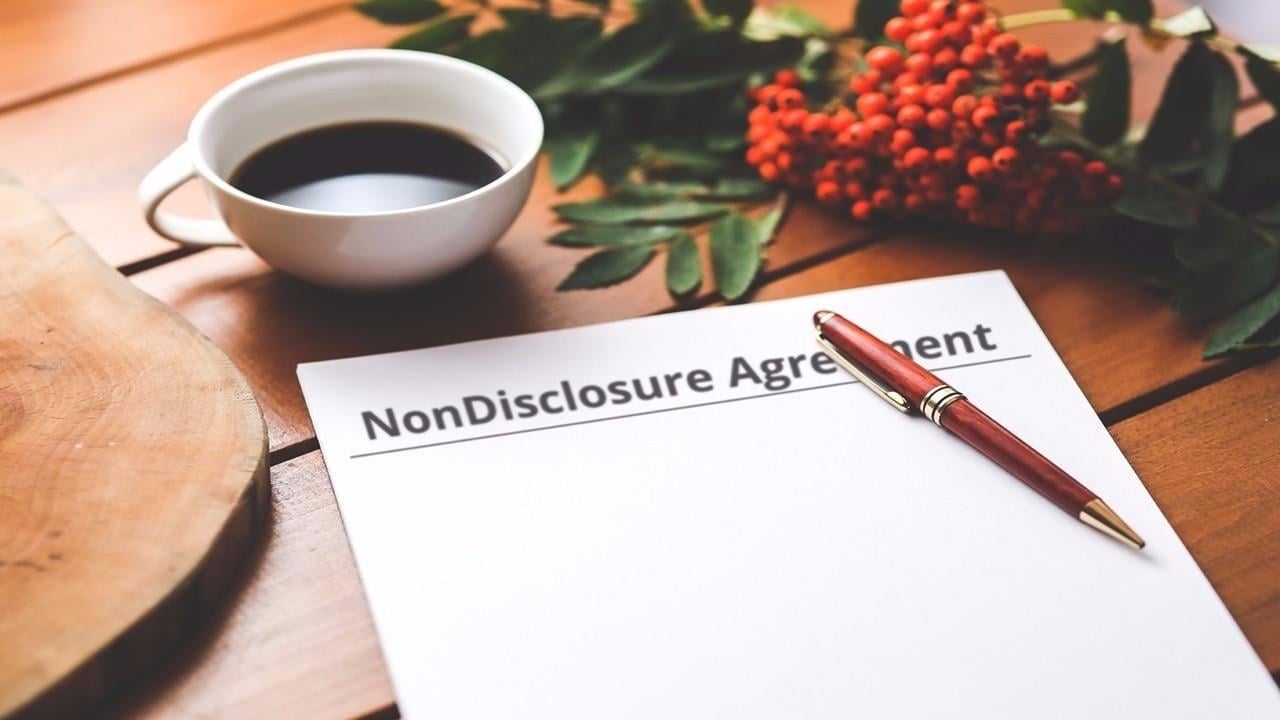How to Handle Confidential Info After Disclosure with an NDA
Imagine this scenario: you’re trying to get another party to sign an NDA, but you’ve already disclosed confidential information to them. If that’s...
4 min read
 Chris Daming, J.D., LL.M.
:
Aug. 1, 2024
Chris Daming, J.D., LL.M.
:
Aug. 1, 2024
For your NDA, you have to define what information you’re declaring as “confidential.”
And there’s a good reason for this -- imagine that your employer tells you that every piece of information they provide is considered “confidential.” You sign the NDA, then the employer tells you that their favorite sports team won a game last night.


Legal GPS Pro
Protect your business with our complete legal subscription service, designed by top startup attorneys.
That information could be found anywhere -- but the NDA said that “all information” the employer tells you is confidential. If that’s the case, are you not allowed to disclose to your friends that your hometown team won the game last night?
Of course, no court would ever uphold that. But that’s kind of the point -- you have to have a good definition of confidential information or else you’ll run into one of two problems:
First, either the NDA will be considered too broad and then deemed unenforceable.
Or second, the NDA will be too narrow. In that case, it’s possible that information the disclosing party shares might not be protected by your NDA. What does this mean? It means that the recipient might be able to share confidential information that the disclosing party otherwise wouldn’t want them to share.
Essential NDA Guide for Business Owners
In general, most NDAs have a broad definition like this one in our template:
“Confidential Information” means any information that is proprietary or unique to the Company and that is disclosed by the Company to the Recipient during the term of this Agreement, including the following: trade secret information; matters of a technical nature such as processes, devices, techniques, data and formulas, research subjects and results; marketing methods; plans and strategies; information about operations, products, services, revenues, expenses, profits, sales, key personnel, customers, suppliers, and pricing policies; and any information concerning the marketing and other business affairs and methods of the Company which is not readily available to the public. “Confidential Information” also includes information of others that (1) is disclosed under this Agreement, (2) the Company is obligated to protect from disclosure or restricted from using or both, and (3) that would constitute “Confidential Information” if the information belonged to the Company.
This assumes you haven't already shared any confidential information with the recipient. If you have before signing the NDA, it's crucial to address this in the agreement. In such cases, you may need to outline how the previously disclosed information will be treated moving forward. This could involve stating that the recipient is obligated to keep the information confidential, even if it was shared before the NDA was in place.
Additionally, you may need to specify any exceptions or limitations regarding the previously disclosed information to ensure that it remains protected under the agreement. Failure to address this could potentially lead to disputes or misunderstandings down the line, so it's essential to clarify the status of any confidential information that was shared prior to signing the NDA. Check out our blog for a more comprehensive look on what happens if I’ve already disclosed confidential information.


Legal GPS Pro
Protect your business with our complete legal subscription service, designed by top startup attorneys.
So what’s the takeaway? Aim for specificity. Be as specific and descriptive as possible without actually revealing the information you want to protect in the nondisclosure agreement. If the description is too broad, a court can’t enforce the NDA. For example, if you said that all conversations between the parties are confidential, then you’d run into the same problems as noted above.
This specificity is essential to ensure that the NDA is enforceable in court. By clearly outlining what constitutes confidential information, you can protect trade secrets, customer lists, research and development processes, and other proprietary data.
For example, if you have developed a unique formula for a product and are sharing it with a potential partner, the NDA should explicitly mention the protection of this formula without disclosing the specifics.
By being detailed and descriptive in defining confidential information, you can safeguard your intellectual property and prevent any potential disputes or misunderstandings. Remember, the key is to aim for specificity in order to create a strong and effective NDA.
Here are some examples of what people use: trade secrets, customer lists, technical, engineering, and scientific research, development, and processes. Employee lists. Financial projections. And there are a lot more. Just try to think about what information you’re going to be disclosing to the receiving party, and then describe it in this provision.
Here’s another example. Let’s say you developed a formula for longer-lasting printer ink, and a potential distributor wants to license your ink to sell it. The NDA should clearly state that the purpose of the agreement is to protect the disclosure of your printer ink formula in the context of your relationship to the distributor.
The formula itself will not be included in the NDA, but a description of the type of trade secret to be protected should be described: the ink developed from what you might define in your NDA as “the formula for printer ink.”
If you know exactly what you have in mind in terms of protecting, add it to the definition. The last example of printer ink is a great example of that. But if it’s much more broad like if you’re hiring an employee to sales or marketing, then the broad definition we have should cover everything.
The biggest question now is, "Do I need a lawyer for an NDA?” For most businesses and in most cases, you don't need a lawyer to start your business. Instead, many business owners rely on Legal GPS Pro to help with legal issues.
Legal GPS Pro is your All-In-One Legal Toolkit for Businesses. Developed by top startup attorneys, Pro gives you access to 100+ expertly crafted templates including operating agreements, NDAs, and service agreements, and an interactive platform. All designed to protect your company and set it up for lasting success.

Legal GPS Pro
Protect your business with our complete legal subscription service, designed by top startup attorneys.

Imagine this scenario: you’re trying to get another party to sign an NDA, but you’ve already disclosed confidential information to them. If that’s...

When you're sharing sensitive information, it's crucial to have the recipient sign a Non-Disclosure Agreement (NDA) before you share anything. While...

If your company has valuable information that you wouldn’t want a competitor to possess, chances are it could be considered a trade secret. To...